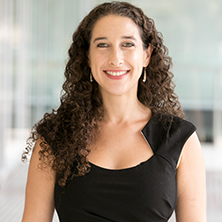Diplomacy Professor and International Legal Scholar Awarded Research Grant
Friday, March 29, 2019

Dr. Zinaida Miller, Assistant Professor of International Law and Human Rights at the School of Diplomacy and Senior Fellow at the Institute of Global Law & Policy at Harvard Law School, was recently awarded a Social Sciences and Humanities Research Council of Canada (SSHRC) grant of CAD $18,000 with McGill University colleagues Dr. Catherine Lu and Dr. Megan Bradley, to fund their project The Margins of Accountability. Within the international law field, Dr. Miller focuses on the conception, management, and regulation of post-conflict and transitional states and societies, particularly with regard to human rights, humanitarianism, and justice. This new project builds on her past work on transitional justice and international criminal law, including her co-edited collection, Anti-Impunity and the Human Rights Agenda (CUP, 2016).
Miller explains, "When we think about international accountability, we generally think about prosecuting individual perpetrators for horrific violence, creating commissions to learn about what happened, and sometimes granting reparations to victims. But there are all sorts of groups, individuals, ideas, and types of violence that are left out of those efforts over and over again. Why and how does that happen? Can we change how we think about who should be held accountable, for what, and against whom? Do we need to rethink what accountability means?"
In March, with funding from the SSHRC grant and the Research Group on Global Justice of the Yan P. Lin Centre at McGill University, Miller, Lu, and Bradley will host a workshop in Toronto with scholars from around the world and across a variety of disciplines. The papers presented there will discuss accountability for, among others, intersectional harms, longstanding violence against indigenous peoples, environmental violence, infectious disease, and global migration. Participants will explore why it is so difficult to imagine accountability in many of these cases or how existing efforts further marginalize certain groups, making them feel even more invisible or silenced.
For example, Miller asks, "When we call disasters 'natural', it makes it seem that no one is responsible. But what about the responsibility of the state for decisions that left parts of the population in vulnerable areas or failed to provide them the resources to survive?" She adds, "We know that environmental harms, diseases, disasters, famines are all experienced in radically unequal ways depending on one's nationality, socio-economic level, education, race, ethnicity, and many other factors. It might be the recent decisions of governments or the long legacy of colonial violence and enslavement that fostered that inequality of harm. Who should be held accountable and what would that look like?"
With her collaborators and colleagues, Miller hopes to begin to develop better answers to these crucial questions.
Learn more about Dr. Miller's scholarship and meet more of our accomplished faculty by visiting our faculty web page »






